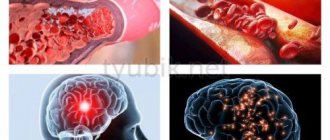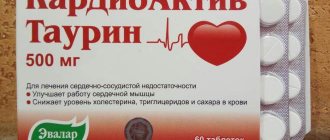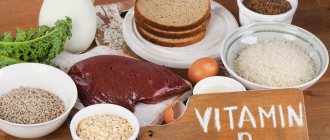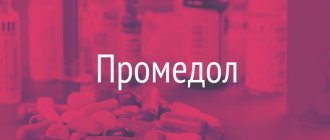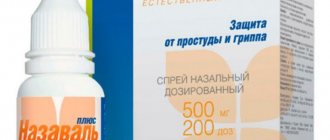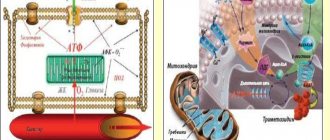pharmachologic effect
The drug belongs to the group of angioprotective drugs and has a herbal composition. Increases the body's resistance to hypoxia, slows down toxic and traumatic swelling of brain tissue, normalizes peripheral and cerebral circulation, stabilizes the rheological functions of the blood.
The drug dilates arteries and increases the tone of blood vessels and veins.
In addition, the drug dilates arteries and increases the tone of blood vessels and veins, prevents the formation of free radicals and oxidation of cell membranes by lipids.
Pharmacokinetics
The activity of the drug is due to the combined effect of the elements in the composition of the ginkgo biloba extract, therefore clinical studies regarding their pharmacokinetics are impossible.
Pharmacological properties of the drug Memoplant and Memoplant forte
A preparation containing a standardized dry extract from the leaves of the East Asian tree Ginkgo biloba EGb 761®. Increases tissue resistance to hypoxia, especially brain tissue; inhibits the development and accelerates the regression of cerebral edema caused by injury or intoxication; reduces retinal swelling and damage to the cornea; prevents the age-related decrease in the number of M-cholinergic receptors and α2-adrenergic receptors, as well as an increase in choline consumption in the hippocampus; improves memory and learning ability; improves compensation for imbalances; increases blood flow, improves microcirculation and rheological characteristics of blood; inactivates toxic oxygen radicals; has an antagonistic effect on platelet activating factor; has neuroprotective activity. After oral administration of ginkgo extract in liquid (solid) dosage form, the terpene lactones - ginkgolide A, ginkgolide B and bilobalide - have high bioavailability, which is 100% (98%) for ginkgolide A, 93% (79%) for ginkgolide B and 72% for bilobalide. After administration of 80 mg of extract, maximum plasma concentrations are 15 ng/ml for ginkgolide A, 4 ng/ml for ginkgolide B and approximately 12 ng/ml for bilobalide. The half-life is 3.9 hours (ginkgolide A), 7 hours (ginkgolide B) and 3.2 hours (bilobalide). Plasma protein binding is 43% for ginkgolide A, 47% for ginkgolide B and 67% for bilobalide.
Indications for use
The antioxidant is prescribed for the following conditions and diseases:
- pathologies of cerebral and peripheral circulation, accompanied by deterioration of memory and mental abilities, headache, ringing in the ears, dizziness;
- obliterating pathologies of the arteries of the legs, accompanied by coldness and numbness of the feet, intermittent claudication;
- Raynaud's disease;
- dysfunction of the circulatory system;
- pathologies of the inner ear and associated vascular disorders.
Oral tablets Memoplant
Instructions for medical use of the drug
Description of pharmacological action
Improves cerebral circulation, regulating peripheral circulation.
Indications for use
- organic (arising as a result of age-related circulatory disorders) and functional disorders of the brain with such manifestations as memory impairment, decreased ability to concentrate and intellectual capabilities, depressed mood, dizziness, tinnitus, headache; - peripheral circulatory disorders including obliterating diseases of the arteries of the lower extremities (intermittent claudication, numbness and coldness of the feet, Raynaud's disease); - dysfunction of the inner ear, manifested by dizziness, unsteady gait, and tinnitus.
Release form
tablets p/o 40 mg, No. 20 tablets p/o 80 mg, No. 10, No. 20, No. 30
Pharmacodynamics
Increases the body's resistance, especially brain tissue, to hypoxia, inhibits the development of traumatic and toxic cerebral edema, improves cerebral and peripheral circulation, and blood rheology.
Pharmacokinetics
The effect of the drug Memoplant is the combined effect of the components of the ginkgo biloba leaf extract, so kinetic studies are not possible.
Use during pregnancy
Due to the lack of sufficient clinical data, the use of the drug during pregnancy and breastfeeding is not recommended.
Contraindications for use
- hypersensitivity to the components of the drug; - hypocoagulation; - erosive gastritis; - peptic ulcer of the stomach and duodenum in the acute stage; - acute cerebrovascular accidents; - acute myocardial infarction; - children under 12 years of age (insufficient data on use).
Side effects
Possible allergic reactions (redness, skin rash, swelling, itching), gastrointestinal disorders, headache, hearing impairment, dizziness, decreased blood clotting. Isolated cases of bleeding have been observed in patients who were simultaneously taking anticoagulants (the cause-and-effect relationship of bleeding with taking Ginkgo biloba EGb 761® has not been confirmed). If any adverse events occur, you should stop taking the drug and consult your doctor.
Directions for use and doses
Orally, regardless of the time of meal, without chewing, with a small amount of liquid. Unless another dosage regimen is prescribed, you should adhere to the recommendations listed below for taking the drug. For the symptomatic treatment of cerebrovascular disorders: 1–2 tables. (40–80 mg) 3 times a day. The duration of treatment is at least 8 weeks. For peripheral circulation disorders: 1 table. (40 mg) 3 times a day or 2 tablets. (80 mg) 2 times a day. The duration of treatment is at least 6 weeks. For vascular and involutional pathology of the inner ear: 1 table. (40 mg) 3 times a day or 2 tablets. (80 mg) 2 times a day. The duration of treatment is 6–8 weeks. If the next dose was missed or an insufficient amount of the drug was taken, the next dose should be taken in accordance with the instructions.
Overdose
No cases of overdose have been reported. Memoplant is usually well tolerated.
Interactions with other drugs
It is not recommended to prescribe Memoplant to patients constantly taking acetylsalicylic acid, anticoagulants (direct and indirect action), as well as drugs that reduce blood clotting.
Special instructions for use
If you experience frequent feelings of dizziness and tinnitus, as well as in case of sudden deterioration or loss of hearing, you should immediately consult your doctor. The drug contains lactose, and therefore is not recommended for use in patients with congenital galactosemia, glucose or galactose malabsorption syndrome, or congenital lactase deficiency.
Storage conditions
At a temperature of 15–25 °C.
Best before date
60 months
ATX classification:
N Nervous system
N06 Psychoanaleptics
N06D Drugs for the treatment of dementia
N06DX Other drugs for the treatment of dementia
N06DX02 Ginkgo biloba
Contraindications
Angioprotective agent is contraindicated in the following conditions:
- erosive form of gastritis;
- peptic ulcer;
- poor blood clotting;
- acute form of myocardial infarction;
- acute pathologies of cerebral circulation;
- being a minor;
- individual intolerance to the components of the drug.
Carefully
The medicine is carefully prescribed to patients with epilepsy.
The medicine is carefully prescribed to patients with epilepsy.
How to take Memoplant 120
The herbal medicine is taken orally. Food does not affect the level of its absorption.
Average doses - 1 tablet 3 times a day. The duration of treatment is determined depending on the effect obtained and the severity of the disease and ranges from 8 to 12 weeks.
Is it possible to use for diabetes?
The results of laboratory studies indicate that the angioprotective agent normalizes hemodynamic parameters and the condition of the retina. Patients with diabetes are recommended to combine it with Berlition.
If no positive dynamics are observed, then a second course of medication can be taken only 3 months after completion of the previous one.
If the next dose was missed, then it is forbidden to take a double dose of the medication. Subsequent therapy should take place without violating the dosage schedule specified by the doctor.
Directions for use and doses
The drug is taken orally, regardless of food intake. The tablets should be swallowed without chewing, with a small amount of liquid.
Prescribe 1 tablet. (120 mg of dry standardized extract of Ginkgo biloba leaves EGb 761) 1-2 times/day. The duration of treatment depends on the severity of the disease and is at least 8 weeks.
If there are no results after 3 months of treatment, the advisability of further treatment should be assessed.
If a dose of the drug is missed or if an insufficient amount has been taken, the subsequent dose should be taken as indicated in the dosage regimen, without any changes.
Side effects
Despite the herbal composition, the drug can have a negative effect on the human body.
Blood-forming organs
On the part of the hematopoietic system, patients receiving the drug may experience a blood clotting disorder.
There is a risk of itching.
central nervous system
The central nervous system may react to the drug with the following symptoms: dizziness and headache, loss of coordination. However, such reactions are observed in rare cases.
From the cardiovascular system
When using the drug, there is a possibility of changes in ECG parameters.
Allergies
There is a risk of swelling, itching, allergic rhinitis and red spots on the skin.
special instructions
Patients with epilepsy who use the angioprotective drug in question may experience epileptic seizures, so such patients require special monitoring of clinical indicators.
The patient should be informed about the risk of tinnitus and deterioration of psychomotor function. If there are any deviations from the norm, you should consult a doctor.
Alcohol compatibility
If you combine the drug with alcoholic drinks, you may experience liver problems. In addition, this combination can cause the development of ulcers, headaches and drowsiness.
Being a minor is one of the restrictions on taking the drug.
Impact on the ability to operate machinery
Patients receiving angioprotective medication are advised to refrain from operating complex equipment (including motor vehicles) for the entire period of treatment, as it can lead to decreased attention and impaired psychomotor reactions.
Use during pregnancy and lactation
The instructions for use of the medication say that it is not advisable for nursing and pregnant women to use it.
Prescription of Memoplant for 120 children
Being a minor is one of the restrictions on taking the drug.
Use in old age
For people over 64 years of age, the drug is prescribed in minimal dosages and under medical supervision.
You should not take the medication simultaneously with acetylsalicylic acid.
Storage conditions of the drug
Protect access for children. Store at a temperature of +10…+24°C.
Best before date
5 years.
Reviews of Memoplant 120
Before using the drug, it is recommended to read the reviews of people who have taken it and specialists.
Doctors
Semyon Kondratyev (therapist), 40 years old, Tambov
According to most medical specialists, this drug is one of the most effective compared to most analogues. The medication normalizes blood clotting and avoids many vascular complications. Along with it, it is advisable to take vitamins and use various hygiene products. Affordable price and high efficiency make the use of this medicine an extremely appropriate choice.
Patients
Valery Shpidonov, 45 years old, Ufa
This drug was prescribed by a neurologist for a course of 2 months. I’ve been taking it for 4 weeks so far, but there are already positive changes. The general condition improved, the ringing in the ears and the painful headache disappeared. The only disadvantage we can highlight is that these tablets have an unpleasant taste, but the advantages of the medication completely cover this minor drawback. What’s attractive about the drug is its natural composition, for which you don’t mind paying extra.
Svetlana Dronnikova, 39 years old, Moscow
I used the drug in the treatment of chronic headaches. I took the pills according to the dosage regimen prescribed by the doctor. No adverse reactions were recorded, positive dynamics appeared quickly. Now there is no discomfort, and I can live and enjoy, doing my favorite things, being in high spirits. An effective medicine at an affordable price.
Release forms and composition
The medication is produced in the form of tablets containing 40, 80 or 120 mg of the active ingredient (ginkgo biloba foliage extract). They used 60% acetone as an extractant.
Additional components include:
- lactose monohydrate;
- colloidal silicon dioxide;
- MCC;
- croscarmellose sodium;
- talc;
- titanium dioxide.
The medicine is packaged in blisters of 10, 15 or 20 tablets.
The medication is produced in the form of tablets containing 40, 80 or 120 mg of the active ingredient (ginkgo biloba foliage extract).
